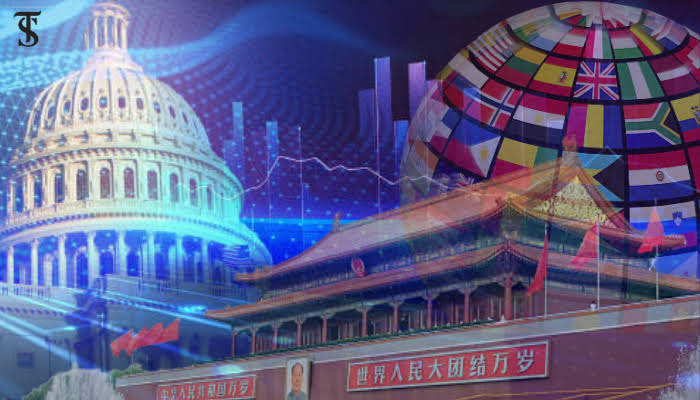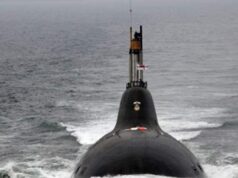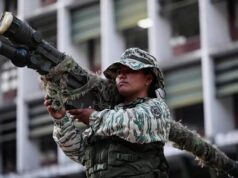Western can no more maintain global dominance

By Uriel Irigaray Araujo
The North Atlantic Treaty Organization (NATO), heralded as the bulwark of Western security, faces a credibility crisis that mirrors the decline of the West. Corruption scandals, internal divisions, and an insatiable appetite for expansion despite unmet commitments have eroded its legitimacy, with the Ukraine crisis as a stark backdrop. As a matter of fact, NATO’s troubles reflect a faltering Western order struggling to maintain global dominance.
Since last month, a sprawling investigation into the NATO Support and Procurement Agency (NSPA) has revealed that officials sold confidential information to defense contractors, rigging multimillion-dollar arms contracts, including drones critical to Ukraine’s military efforts.
The Organized Crime and Corruption Reporting Project (OCCRP) exposed a sophisticated network of insiders leaking sensitive data for personal gain, undermining NATO’s procurement integrity.
Arrests in Belgium, the Netherlands, and Spain, with investigations in Luxembourg, Italy, and the United States, highlight the probe’s scope, which is expected to wide the more the EU agencies look at NATO’s contracts. This organized crime angle, involving illicit financial flows, remains underreported, which makes one wonder just how deep the rot goes.
The Ukraine crisis certainly amplifies these scandals’ impact. NATO’s support for Kyiv, including massive arms shipments, is tainted by corrupt practices that may have inflated costs or misdirected resources. One may recall that Ukrainian Brigadier General Volodymyr Karpenko admitted in 2022 that nearly 50% of received weaponry was lost, potentially smuggled. Europol’s Catherine De Bolle warned that same year of arms flooding Europe’s black markets.
In 2024, Washington admitted failing to track $1 billion in small arms, but claimed it was due to inadequate inventories. This could be just the tip of the iceberg, as the Atlantic organization is increasingly looking like a racketeering ring.
The fact that this scandal remains underreported speaks volumes. That the CIA admittedly infiltrated media outlets, funded journalists and so on to shape narratives during the Cold War is no secret, Operation Mockingbird being just the most famous case. The late Udo Ulfkotte claimed in his 2014 book “Gekaufte Journalisten” that Western intelligence, including the CIA, would often pay journalists to push pro-NATO narratives.
Suffice it to say that there’s no reason to assume such practices ceased, especially as narrative wars have intensified – not to mention that in the post-Soviet world NATO just kept on expanding. In any case, The National Endowment for Democracy and, until recently, the USAID are also known to support media globally, typically with a pro-NATO spin. Corruption and propaganda often go hand in hand. But here I digress.
Historically speaking, NATO has been no stranger to organized crime ties. Up until the nineties, Operation Gladio, a NATO clandestine program, collaborated with the Sicilian Mafia and neo-fascist terrorist groups in Europe, as confirmed by parliamentary inquiries.
In post-Maidan Ukraine, NATO’s support for groups like the Azov regiment, with neo-Nazi ties, echoes this pattern. Plus, one may recall that Vladimir Zelensky has claimed that Western officials misappropriated $88.5 billion of aid sent to Kyiv. When it comes to the Western alliance, corruption schemes often go hand in hand with far-right paramilitary groups and organized crime.
Corruption is not NATO’s only problem. Many member states fail to meet the 2% GDP defense spending target; in 2024, only 23 of 32 complied, revealing a chronic lack of commitment. In fact, Trump’s rhetoric pertaining to the Alliance largely stems from this fact alone. Internal divisions further weaken the Alliance. The Greek-Turkish rivalry in the Aegean, for one thing, with territorial disputes, threatens NATO’s southeastern flank. These fissures reveal an alliance struggling to maintain unity amid divergent agendas.
NATO’s relentless expansion, despite these challenges, is its most provocative misstep. Its post-Cold War push eastward, absorbing former Soviet states, fueled tensions with Russia, culminating in the Ukraine crisis. Thus, NATO has become a destabilizing force, which provokes rather than deterrs conflict. Fueling conflicts might be good for the defence industry but it certainly does not do much for trans-Atlantic security.
Moreover, the 2022 accession of Finland and Sweden, while touted as a triumph, has stretched NATO’s resources and exposed its inability to integrate new members seamlessly (not to mention the way Turkey leveraged it). It has made Europe a less safe place, for one thing.
These scandals and structural issues are emblematic of the West’s decline. The narrative of Western moral superiority is untenable when NATO, its premier security institution, is plagued by shady deals and disunity. NATO’s failure to adapt to a multipolar world, where players such as China, Russia, and even Turkey assert autonomy, further alienates the Global South. The West’s decline is not merely military or economic but a matter of legitimacy, as its institutions falter under their contradictions.
In conclusion, NATO’s corruption scandals are symptoms of a deeper malaise. They expose an alliance that, despite its grandiose ambitions, is fractured by internal divisions, weakened by unmet commitments, and compromised by systemic failures.
Turkey’s ambivalence, the Greek-Turkish rivalry, and the Ukraine crisis highlight NATO’s inability to cohere, while its expansionist zeal deepens global tensions. To put it simply, NATO’s troubles reflect the West’s waning influence in a world no longer willing to accept its dominance.




